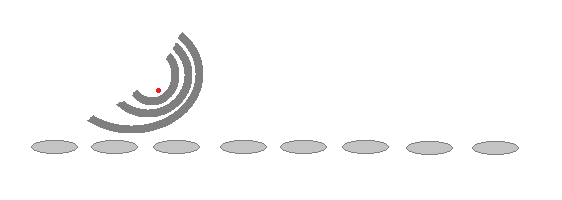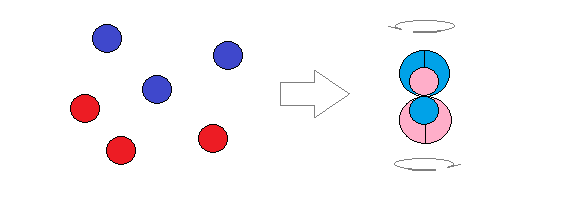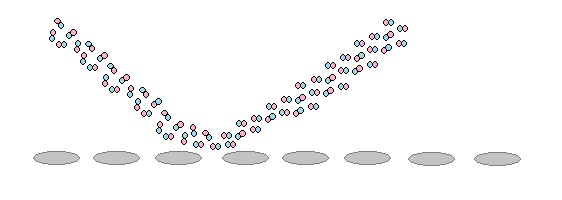Back in year 2000, Halton Arp held this lecture on his career as an astronomer, and his…

Polarization Through Reflection
When light hits a highly reflecting surface, like a mirror, no energy is lost. The bounce of the photons off the atoms that make up the mirror is perfectly elastic. The pilot waves that accompany each photon smooth out the irregularities of the mirror surface so that the bounce of the photon is perfect in every way.

Photon with pilot wave hitting a reflecting surface
So perfect is the reflection that we sometimes confuse it with the real thing. However, there is one telling difference between the light of the original, and the light of the mirror image.
Reflected light is polarized. Photons have an axis of spin which lines up with the surface from which it is bouncing.
Why this is so is simple to explain in terms of the two orb model of the photon.

Two orb photon as an assembly of six particle quanta
The two orb photon is not round. It is elongated along its axis of spin.
It follows from this that photons can be “slammed flat” against a surface. When bouncing off of a reflective surface, photons get their axis of spin oriented parallel to it.

Stream of photons hitting a reflective surface on their way from left to right
The polarization is not perfect. There will be plenty of photons at random orientations. However, there is an overall effect that can be quite pronounced. This is particularly noticeable when it comes to glare from a setting sun or other low light source. A pair of polarized sunglasses that blank out light with horizontal polarization can substantially reduce glare from sunlight reflected off of water.
It should be noted that this kind of optical polarization is not the same as the polarization produced by a magnetic field or electric current. Reflected photons are “slammed flat”, but their orientation remains otherwise random. Their spin is not coordinated, nor is their plus-minus orientation.
Only when we have polarization, spin and plus-minus orientation, all coordinated, do we have magnetism.



This Post Has 0 Comments